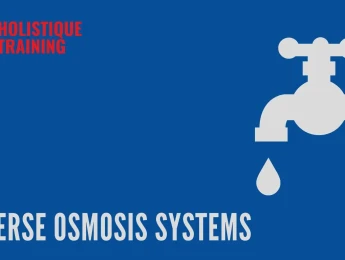Securing a new contract with a vendor or partner is a reason to celebrate, but it's crucial to understand your obligations first. Ensure you fully grasp and meet the client's requirements.
Failure to meet obligations can lead to contract termination, payment reductions, or negative feedback, which can impact your brand's success.
Review the vendor's demands thoroughly and implement initiatives to fulfil your obligations. This might involve project planning, hiring new employees, or updating policies.
Remember, contracts are two-way. Use strong negotiation skills to create mutually beneficial agreements and foster a positive relationship based on honesty and integrity. Admitting and correcting errors promptly can prevent long-term financial and reputational damage.
Upon completion of this course, participants will be able to:
- Develop a full understanding of how contractual obligations build your business.
- Hone your negotiation and communication skills to create positive working relationships.
- Create an action plan to implement changes.
- Uncover potential risks in your agreement and understand how to mitigate them.
- Become a master of dispute resolution and creative thinking.
- Develop a process map for change that meets your obligations.
- Understand the value of your contract and how you can make it work from both perspectives.
- Create a contingency plan if you are unable to meet your obligations.
- Understand what the consequences of not meeting your contractual obligations could be.
This course is designed for anyone responsible for contract management or negotiation. It would be most beneficial for:
- Business Owners
- Account Managers
- Legal Personnel
- Planning Managers
- Project Managers
- Risk Assessors
- IT Personnel
- HR Professionals
- Security & Governance Professionals
- Account Directors
- Operations Managers
This course uses various adult learning methods to aid full understanding and comprehension. Participants will view various contractual agreements and understand exactly what each party may require in a positive working relationship.
They will conduct group activities to understand the financial and reputational impacts of failing to meet obligations. They will conduct role-playing exercises to improve negotiation and communication skills and ensure a mutually beneficial working relationship.
Day 5 of each course is reserved for a Q&A session, which may occur off-site. For 10-day courses, this also applies to day 10
Section 1: Contractual Administration
- Contract administration- what you need to look out for.
- Why is the contract important to your business?
- Your roles and responsibilities.
- The implications of not reviewing your contract.
Section 2: Contractual Administration Tools & Techniques
- Understanding your contract.
- Review your contractual obligations before signing.
- Provisions that may affect implementation.
- Dissection techniques.
- Benchmarking with competitors to set targets.
- Deciding on your Key Performance Indicators (KPIs).
- Your Service Level Agreements (SLAs).
Section 3: Contractor Planning, Change & Evaluation
- Your change and record management system and auditing.
- Issues and risks logs.
- Your Gantt schedule.
- SWOT analysis.
- Setting priority aims.
Section 4: Negotiations & Managing Disputes or Claims
- Understanding and agreeing on the ‘now’ and the ‘later.’
- Your legal obligations and how to manage problems.
- Breach of contract and how to handle it from both perspectives.
- Recovering from financial damages.
- How to handle a claim or dispute.
- Alternative Dispute Resolution (ADR).
- Mediation or Arbitration.
- Equitable Remedies and how they work.
Section 5: Reviewing Your Requirements & Making Changes
- Lessons learned.
- Renewing your contract.
- Aiming for continuous improvement.
- Conducting reviews and surveys for feedback on performance.
- Setting your future negotiation guidelines based on positive performance.
Upon successful completion of this training course, delegates will be awarded a Holistique Training Certificate of Completion. For those who attend and complete the online training course, a Holistique Training e-Certificate will be provided.
Holistique Training Certificates are accredited by the British Assessment Council (BAC) and The CPD Certification Service (CPD), and are certified under ISO 9001, ISO 21001, and ISO 29993 standards.
CPD credits for this course are granted by our Certificates and will be reflected on the Holistique Training Certificate of Completion. In accordance with the standards of The CPD Certification Service, one CPD credit is awarded per hour of course attendance. A maximum of 50 CPD credits can be claimed for any single course we currently offer.
- Course Code PO5-105
- Course Format Classroom, Online,
- Duration 5 days













